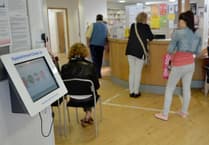The number of young people in Bath and North East Somerset, Swindon and Wiltshire with type 2 diabetes has risen by more than a quarter since the start of the coronavirus pandemic, new figures show.
The Association of British Clinical Diabetologists said the greatest risk factor people can change is obesity, particularly for younger people at risk of the disease.
NHS Digital figures show 2,134 under-40s in the NHS Bath and North East Somerset, Swindon and Wiltshire Integrated Care Board area were registered with type 2 diabetes as of the end of March.
This has risen by 27% since March 2020, when there were 1,680.
Across England, registrations have risen by more than a third over the same period.
Professor Ketan Dhatariya, diabetes consultant and chair of the ABCD, said people were less active during the pandemic, and the average weight of people entering the NHS-run Diabetes Prevention Programme has risen by several kilogrammes.
Professor Dhatariya added: "The greatest risk factor of people under the age of 40 is undoubtedly obesity. And for younger people, diabetes is a much more aggressive disease.
"The complications that occur as a result of diabetes, such as eye disease, kidney and nerve disease, tend to occur much earlier among younger people, so it’s especially important we can recognise and treat these people."
As the Government aims to ease the burden on the NHS with a more preventative approach, a ban on TV adverts before 9pm and all online paid-for adverts for junk food will come into force from October 2025.
Separate NHS figures show 23% of Year 6 pupils were obese or severely obese in 2022-23 as Labours hopes to cut childhood obesity rates in half by 2030.
The figures also show there were 3.6 million people of all ages registered with type 2 diabetes last year – up from 3.2 million in 2020.
In Bath and North East Somerset, Swindon and Wiltshire, 54,725 people were registered with type 2 diabetes in March, an 11% rise since before the pandemic.
The Department of Health and Social Care said the Government aims to improve diabetes treatment "by shifting care from hospital to community" and focusing on prevention, rather than treatment.
A spokesperson added: "We know that preventative action can significantly reduce the risk of developing type 2 diabetes, which makes these increases totally unacceptable.
"We will ease the strain on the NHS by shifting from treatment to prevention, banning TV and online advertising of junk food to children, stopping fast food shops targeting school children and ending the sale of high-caffeine energy drinks to under-16s."




